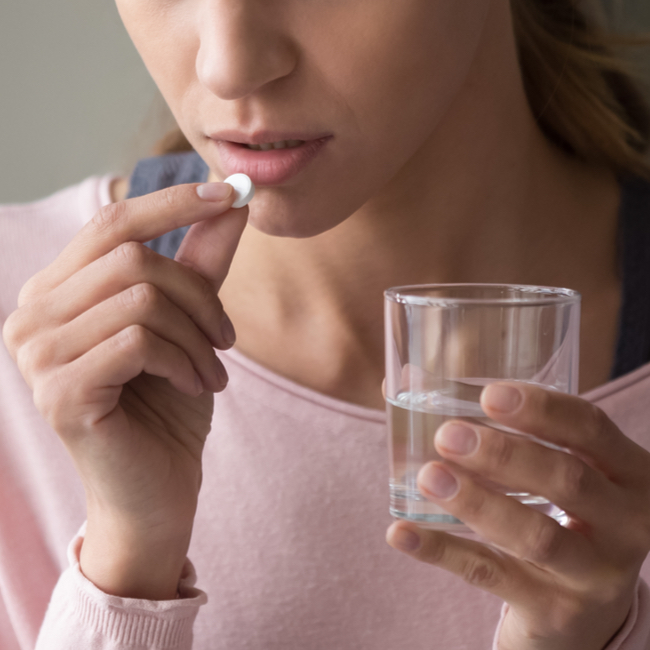If you’re already creating a well-balanced diet, drinking water daily and exercising frequently, taking supplements can add to other great ways to promote your health after 50. We checked in with health experts who determined 3 important supplement options that can give you essential vitamins and minerals that you might not obtain enough of in your diet alone. Longevity is made possible with consistent nourishment and healthy habits, so read on for vital supplement tips from registered dietitian Leah Johnston, holistic nutritionist Jordan Dorn, naturopathic doctor Dr. Mark Iwanicki and epidemiologist public health scientist Stephanie Venn-Watson.


Turmeric / Curcumin
Inflammation is at the root cause of many illnesses, Dorn explains, and chronic inflammation can also speed up the aging process. “Turmeric is one of the most powerful anti-inflammatory herbs in the world, and it can significantly help to reduce inflammation in the body,” he notes. This, he says, is because turmeric contains an active compound called curcumin. “Curcumin is one of the most researched compounds in history, and numerous studies prove it is effective at shutting off inflammatory markers in the body,” Dorn adds. Curcumin is a compound found in turmeric, which Venn-Watson also suggests to take in supplement form. “Curcumin is a powerful antioxidant, which means it can help your body fight off free radical damage,” she says. “Curcumin may also have a soothing effect on areas of discomfort and irritation.” Venn-Watson also says that many users find taking curcumin can alleviate discomfort from aching joints and muscle discomfort. “It’s a great, all-natural alternative for alleviating age-related pain,” she says.

Omega-3 Fatty Acids
These supplements can help lower blood pressure and promote your optimal heart health among many other benefits. “It's a good idea to increase your daily intake of omega-3 fatty acids,” Iwanicki says for anyone over 50. “Most commonly found in cold-water fish, this nutrient has various benefits, including promoting brain development, reducing inflammation, improving heart health and bone strength, reducing the risk of age-related mental decline and Alzheimer’s disease, and promoting restorative sleep.” Iwanicki notes that in order to obtain adequate omega 3s, the typical recommendation is to eat about 8 oz of fish a week. “However, it may be easier to introduce a fish oil supplement, preferably a wild-caught fish oil supplement tested for purity and no heavy metals,” he adds. Iwanicki also indicates that a typical dose ranges from 1000 to 2000 mg per day. “To test for freshness, you can simply break open one capsule and make sure it smells fresh,” he says.

Vitamin D
Vitamin D levels start to diminish as we age due to a variety of factors, including changes to skin integrity, less time spent outdoors, obesity or certain medications and may interfere with absorption, Johnston says. “This nutrient is so important because it’s tied to many essential body functions. A vitamin D deficiency could affect our cardiovascular health, bone density, mood, the risk for depression and potentially our risk for certain diseases, including some types of cancers,” she notes. “There’s even evidence that suggests that vitamin D may play a key role in cognitive performance and decline,” she continues. Lessening your risk for osteoporosis starts at a young age as we start to lose bone mass beginning at age 30, so Johnston says that the stronger your bones are mid-age, the better off they will be in the long-term. “It’s important to visit your doctor annually and have your vitamin D level checked,” she concludes. “If it’s low, you may benefit from a vitamin D3 supplement.”


























